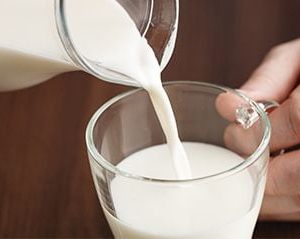- Could Your Grocery Store Meat Be Causing Recurring UTIs?
- Are You Making This Expensive Thermostat Error This Winter?
- Recognizing the Signs of Hypothyroidism
- 10 Strategies to Overcome Insomnia
- Could Artificial Sweeteners Be Aging the Brain Faster?
- Techniques for Soothing Your Nervous System
- Does the Water in Your House Smell Funny? Here’s Why
- Can a Daily Dose of Apple Cider Vinegar Actually Aid Weight Loss?
- 6 Health Beverages That Can Actually Spike Your Blood Sugar
- Treatment Options for Social Anxiety Disorder
Avoid Raw Milk to Cut Risk of Bird Flu, Officials Urge

People drinking raw unpasteurized milk are at risk for potentially contracting bird flu, the U.S. Food and Drug Administration warned Wednesday.
“We continue to strongly advise against the consumption of raw milk,” Dr. Donald Prater, acting director of the FDA’s Center for Food Safety and Applied Nutrition, said during a Wednesday media briefing, the New York Times reported.
Nearly all dairy milk sold in stores is pasteurized, and the FDA says this process appears to kill off the bird flu virus known as H5N1.
“The FDA and USDA have indicated that based on the information we currently have, our commercial milk supply is safe because of both the pasteurization process and that milk from sick cows is being diverted or destroyed,” says an FDA Q&A website about milk safety during bird flu outbreaks.
Federal officials continue to stress that the bird flu poses a low risk to the public at this time, based on this and other data.
But raw milk and raw milk cheese can harbor germs that pose serious health risks to consumers, including avian flu, the agency added.
There have been 202 outbreaks linked to drinking raw milk between 1998 and 2018, resulting in 2,645 illnesses and 228 hospitalizations, according to U.S. Centers for Disease Control and Prevention data cited by the FDA.
Even in the best of times, raw milk “is one of the riskiest foods that we have,” Benjamin Chapman, a professor and food safety specialist at North Carolina State University, told the Times.
Testing has found a “high viral load” in raw cow’s milk, Dr. Rosemary Sifford, deputy administrator of veterinary services at the Department of Agriculture, said during the media briefing.
Further, officials believe the main way the bird flu virus is spreading between cows is through contact with milk, Sifford added.
It’s not clear whether raw milk can spread bird flu to humans, but researchers are continuing to track this, Prater said.
“There’s not a tremendous amount of studies showing the infectivity related to this virus and raw milk products,” Prater said.
The U.S. Department of Agriculture has confirmed cases of bird flu in dairy cows in nine states.
More information
The U.S. Centers for Disease Control and Prevention has more on the H5N1 avian flu.
SOURCE: U.S. Food and Drug Administration, news release; New York Times
Source: HealthDay
Copyright © 2026 HealthDay. All rights reserved.










